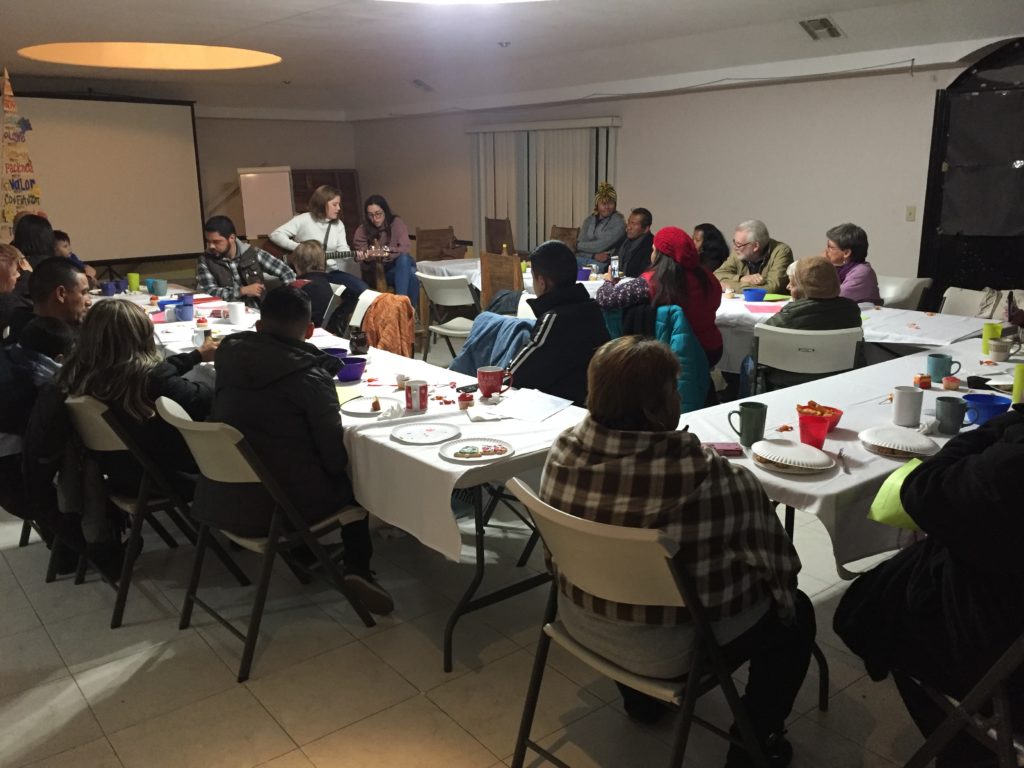My name is James Martin, and I am a student worker at the 787 Collective. I am in my first year of seminary, and before coming to seminary I was a middle school science teacher in a small town called Douglas, AZ on the U.S./Mexico border. The past five years I lived in the border communities of Douglas, AZ and Agua Prieta, MX. The people I met in these communities nourished me with love and fellowship, and greatly influenced how I see and understand the world today in our modern context. In this blog I will be reflecting on how visible and invisible borders impact me and other young adults as an individual and collective group as we form communities that we call the “church” or the “body of Christ”.
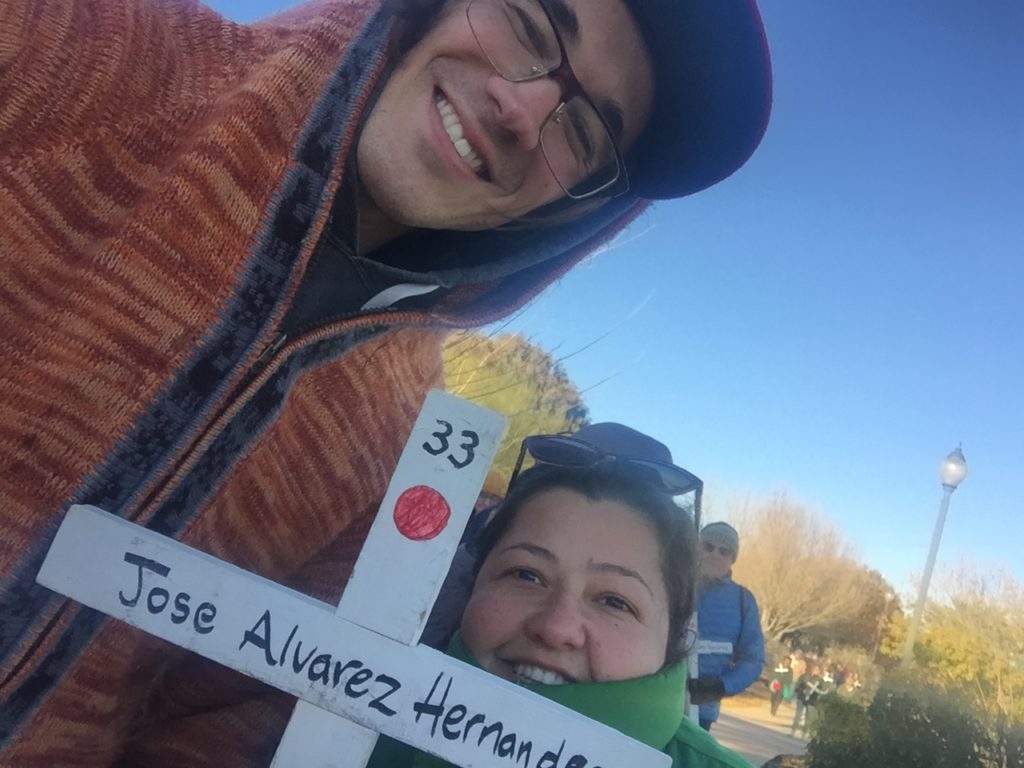
Whether you arrive from the north or the south, the communities of Douglas, Arizona and Agua Prieta, Sonora can seem far and isolated from the rest of the United States and Mexico. But, year after year thousands and thousands of people come to this border for different reasons, and encounter a place that gives people a wide range of treatment from extortion, to suffering and death, to opportunity, empowerment and belonging. For myself, it was certainly the latter, as a community adopted and cared for me as their beloved brother, even though we did not share much in common in terms of culture, nationality, ethnicity or socioeconomic status.
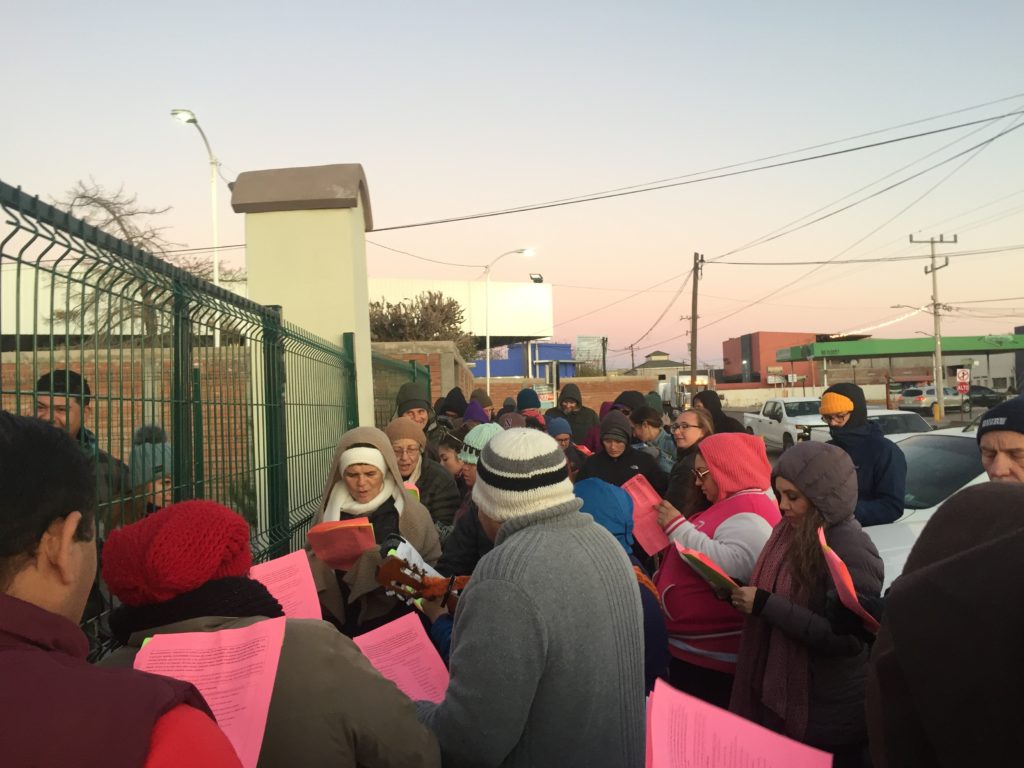
When I first moved to the communities of Douglas and Agua Prieta, I felt an odd mixture of emotions ranging from excitement to fear as I encountered a place that was both foreign and familiar. My anxieties and fears about living in a Mexican border community as a white U.S. gringo or foreign outsider were largely eased as I was embraced with open arms by an eclectic group of people who I now call my siblings, best friends and community. I later realized that for the local people who work with the greater church in Douglas and Agua Prieta, it is their way of life to welcome strangers like me into the communities they call home.
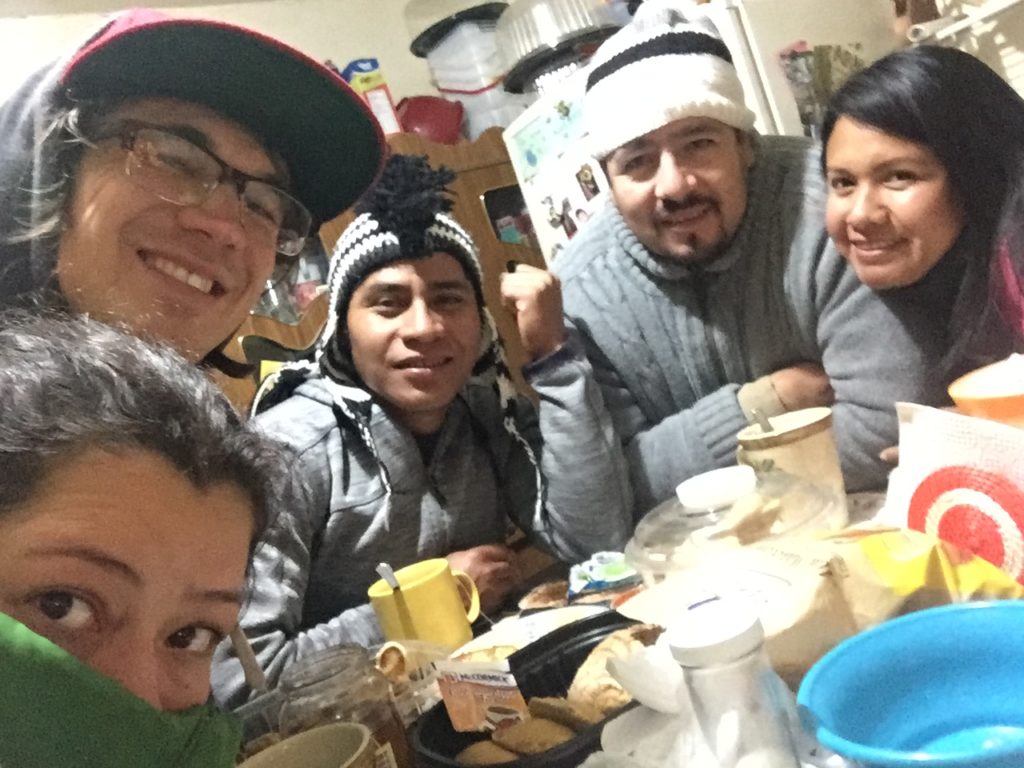
It is perhaps difficult to find a group of people that are more connected across great differences and barriers than the people who form this ecumenical community of Douglas and Agua Prieta. They can be rich or poor, Catholic or Protestant, immigrants or snow birds, young or old and they come both from el Sur (Mexico and Central America) and el Norte (U.S. and Canada). There are many things that divide people on the border, but what I didn’t know before I arrived to Douglas and Agua Prieta is that there is also a place, community and God that connects them. They are a people who live to be united by the border, and not separated by it. And while most do not attend the same service or mass on Sunday mornings, they form a different type of church the rest of the week. It’s the church that meets to remember migrants who have died, the church that works to establish more fair trade, the church that meets to celebrate each other, the church that teaches each other to grow gardens and sew clothes and the church that still provides humanitarian aid to migrants even when threatened by organized crime and sectors of the government. (Scott Warren Acquitted Over Helping Border-Crossing MigrantsFamilies face extortion from cartels near Agua Prieta, Mexico)
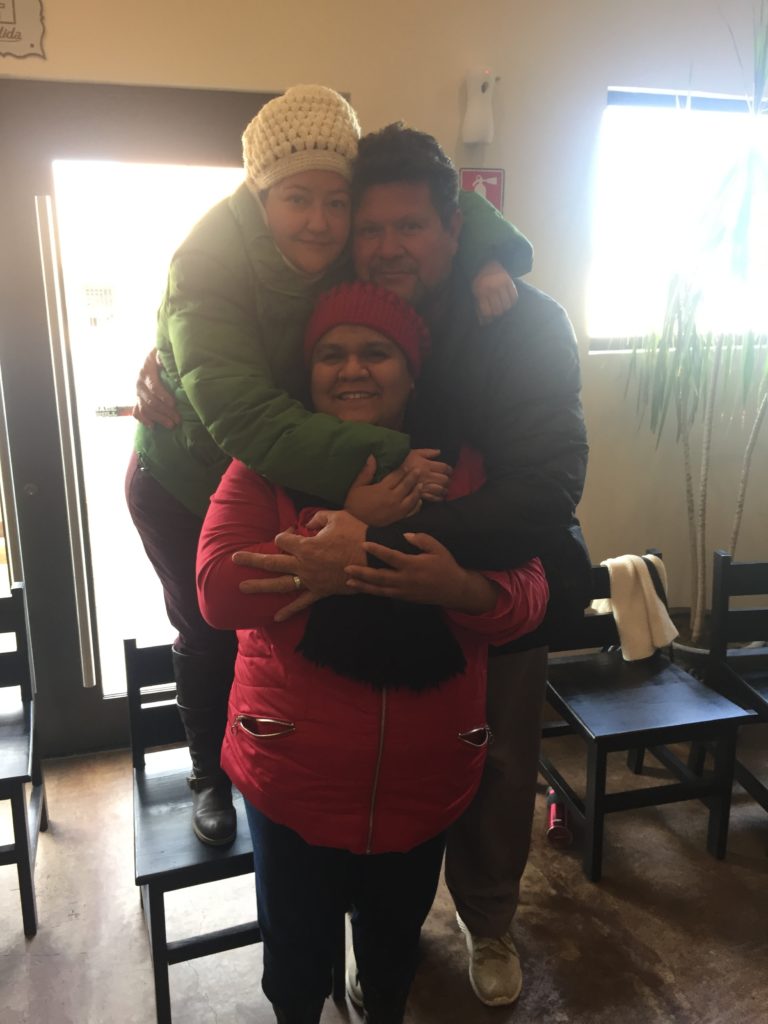
It was this church that I encountered on the border as a young adult, and it was this diverse group of people who became my siblings and inspiration for hope in a place that has only become more violent and militarized over the past five years. In seminary, I am confronted with a lot of unknowns and questions about church and Christianity in the 21st century. But when I return to Douglas and Agua Prieta I am reminded of a church and Christ that is less about how we divide ourselves and more about how we are siblings that cross divisions and barriers to be in community with each other. The sense of belonging that I felt this Christmas when I gathered with my siblings along the border wall to remember that Jesus Christ was also an immigrant, is the living Christ that connects my faith to the difficult realities of our world today. It gives me a sense of hope that walls do come down because there have been borders and walls inside of me that came down from the love of this beloved community.
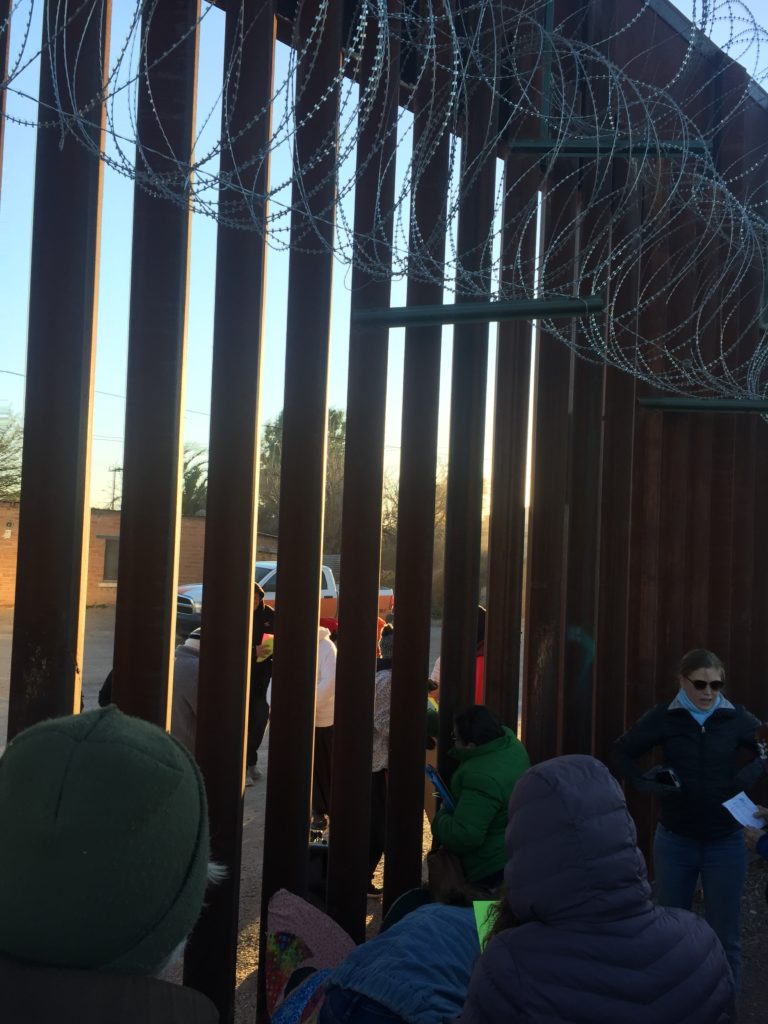
As much as I appreciate how this community nurtured and shaped me into a young adult that is passionate about the church and the living Christ today, the U.S./Mexico border and the church does not treat all people with such love and care. My privileges as a white male citizen of the United States obscured the invisible walls and suffering of the borderlands, and I lived my first 3 years in Agua Prieta comfortably far from the harsh realities of my siblings. However, the deep bonds of fellowship and friendship with my siblings began to transform me. As I experienced second-hand the suffering and violence from white supremacy, organized crime, xenophobia and sexism with my siblings, their realities became more apparent and intimately connected to me. This is the true power of the church on the border because it brings very different people together to be deeply united by fellowship with God. And whenever I visit Douglas and Agua Prieta I say that I am going to visit people like family, because I shared some of the most beautiful and painful experiences of life with them.
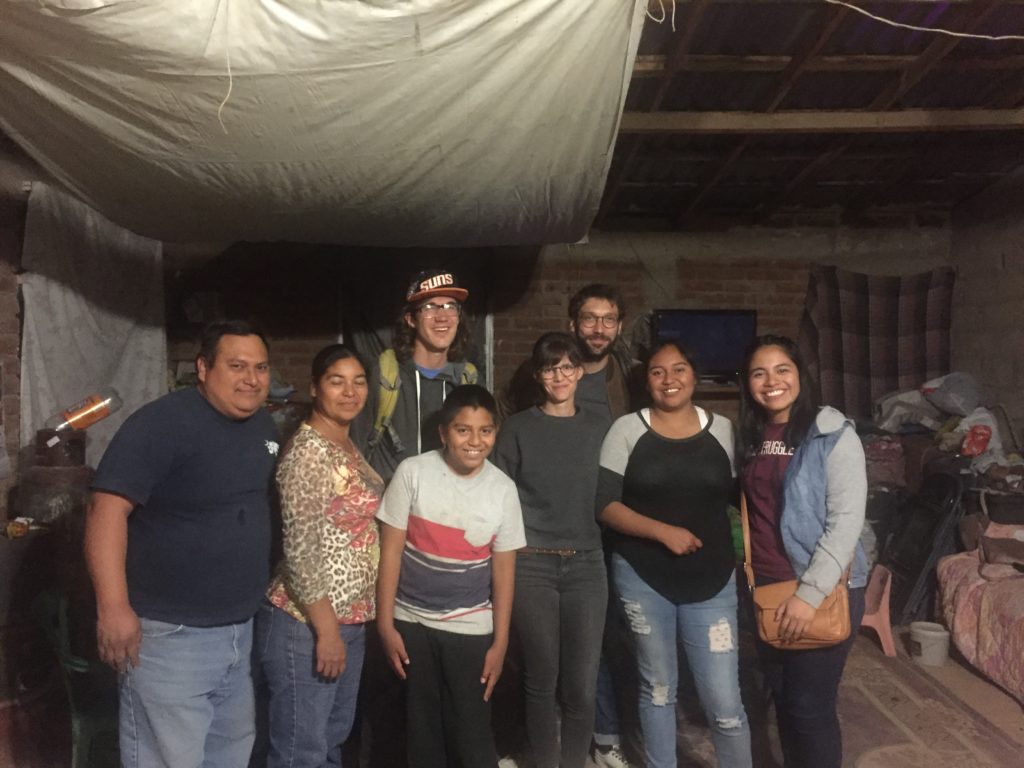
I came to realize that our most harmful borders are the ones that have no physical walls, but intrinsic ways of functioning in society that segregate people through classism, racism, sexism and white supremacy. They are the borders that keep people within the invisible cages of power structures, so that they can never realize their great potential as children made in the image of God. I awakened to the reality that my own siblings suffered from borders that benefited me, and that if I truly loved my siblings, I needed to be on their side both personally and politically. My church family in Douglas and Agua Prieta will always remind me that church is not a place to be comfortable, but a place where borders are crossed because my beloved siblings come from many countries, ethnicities, races and socio-economic backgrounds. But if church only reinforces the walls and structures of unequal social systems, then we have compromised on the message of Jesus Christ, to see people as beloved children of God and our siblings in Christ.
